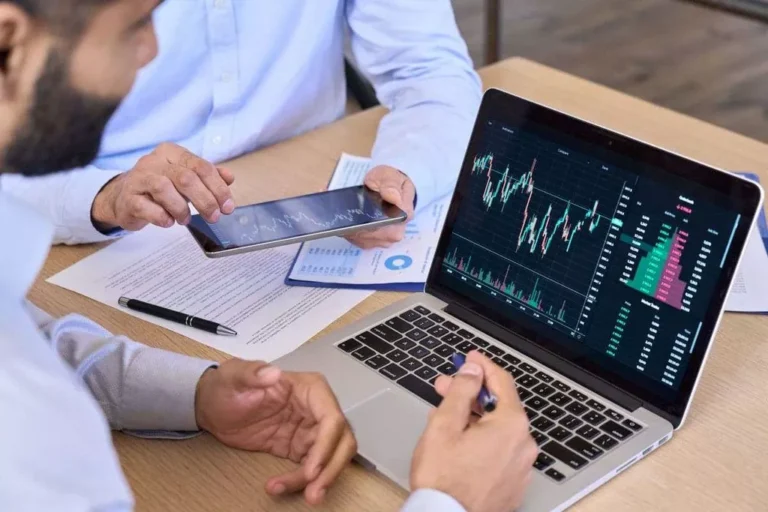To better understand how market makers make profits, let’s take a hypothetical example using real-world data. Investors can sell shares at the sell price and have them sold to a buyer by the DMM. Let’s dive deeper into the world of designated market makers (DMMs).

They derive income from the price differentials on such trades, as well as for the service of providing liquidity, reducing transaction costs, and facilitating trade. Market makers earn profit from taking risk, namely that they will be able to resell shares they purchase at a profit. Their operations play an integral role in market structure, ensuring that stocks have a willing buyer or seller at a reasonable price in all market conditions.
Market orders provide market makers with a convenient way to overcharge retail investors – so, how can one avoid this form of manipulation? While there is no corruption with market makers in the U.S., because of strict regulations, there are still a couple of less-than-savory crypto market making practices that are common and slightly exploitative. They don’t tend to cause huge losses to retail investors but are best avoided. To begin with, a brokerage is a person or more commonly a firm that is authorized to execute buy and sell orders on the behalf of the client.
Without market makers, however, trading would slow down significantly. It would take considerably longer for buyers and sellers to be matched with one another. This would reduce liquidity, making it more difficult for you to enter or exit positions and adding to the costs and risks of trading. Market makers are required to continually quote prices and volumes at which they are willing to buy and sell. Orders larger than 100 shares could be filled by multiple market makers. Had the product launch been a hit, Apple shares could have continued rallying, leaving the market maker on the wrong side of the action.
Besides his extensive derivative trading expertise, Adam is an expert in economics and behavioral finance. Adam received his master’s in economics from The New School for Social Research and his Ph.D. from the University of Wisconsin-Madison in sociology. He is a CFA charterholder as well as holding FINRA Series 7, 55 & 63 licenses. He currently researches and teaches economic sociology and the social studies of finance at the Hebrew University in Jerusalem.
Examples of Market Maker
While humans can take minutes, automated systems are so fast that they can do these calculations in microseconds. Hence, stock market mathematics is an important concept to be learnt. Also, ahead we will understand how an automated market maker is more efficient than a human counterpart. Coming back to the topic of discussion, market makers also help reduce price volatility which leads to fair pricing of the assets. This is the reason that market makers have been an integral part of market infrastructure. Moreover, it is expected that their influence will continue as long as people continue to trade financial assets.

A market maker participates in the securities market by providing trading services for investors and boosting liquidity in the market. They specifically provide bids and offers for a particular security in addition to its market size. Market makers typically work for large brokerage houses that profit off of the difference between the bid and ask spread. They are required to provide liquidity in the market so that the trades can be executed at an optimal transaction cost, and the markets can function seamlessly. If market makers are not available, then the number of transactions can be affected, and overall investing can get reduced.
How Can Market Makers Manipulate Stocks?
Market makers earn money on the bid-ask spread because they transact so much volume. So, if a market maker is buying shares on average for a few pennies less than it sells them for, with enough volume it generates a significant amount of income. At times the profits market makers realize can be magnified by the large trading volume they have.
Buying power controls how much money you can deploy at any time. Have you ever seen a stock exhibiting normal trading behavior and then all of a sudden the stock price drastically drops out of nowhere? This type of price action could be related to the announcement of a shelf offering or the execution of an “at-the-market” sale from… Market Makers do not provide services to the clients and instead, they create the market for investors. Brokers do not reflect market demand and supply as they do not set prices. Hence, it is really imperative for strong markets to have strong market makers that survive without incurring huge losses.
- The exchange, which is operated by Deutsche Börse AG, calls its market makers designated sponsors.
- In addition, market makers may charge commissions for their services.
- This would reduce liquidity, making it more difficult for you to enter or exit positions and adding to the costs and risks of trading.
- The meat and potatoes of the story is that market makers provide liquidity – the ease of doing business (buying and selling) and converting assets to cash.
You don’t want to get stopped out of a trade only to see the stock take off right after. And they maintain close relationships with key players at major firms. In other words, they’re in the know and they’ve got connections. That’s why so many rely on algorithms to stay ahead of the curve. Hear him talk about his heyday of market making on one of our most-watched episodes to date. So they can work in-house at a major investment firm or independently.
Market makers and their importance in the financial markets
Basically, ComputerShare allows investors to directly purchase stocks. This stands in contrast to the traditional route of going through a stock brokerage, where the brokerage itself holds the shares for the investor. If a market maker owns a position in a stock and posts an order to buy thousands of shares in that stock, that can create the impression of buying pressure and increased investor interest. This, in turn, can easily be interpreted as a sign that the stock’s price is going to rise. Big market makers such as Citadel Securities, Wolverine Capital Partners, and Susquehanna International Group are wide-scale, capital-intensive, and highly profitable. At every moment during the trading day, these and other market makers are ready to take the other side of your order for a razor-thin theoretical profit margin.
There can be other customized arrangements for income between the client and the market makers within the acceptable guidelines of the regulators. Successful trading relies on having good information about the market for a stock. Price information is often visualized through technical charts, but traders can also benefit from https://www.xcritical.in/ data about the outstanding orders for a stock. But, the reality is that market makers have deep pockets so in most cases, they are able to withstand massive drawdowns and hold on to losing positions for long periods. So far, we have discussed the basic functions of market makers but here are the 3 main ones you should know.
Bloomberg: FTX Bankruptcy Triggers 30% Profit Margin Drop for … – Blockchain.News
Bloomberg: FTX Bankruptcy Triggers 30% Profit Margin Drop for ….
Posted: Tue, 05 Sep 2023 07:00:00 GMT [source]
To offset this loss, the market maker might widen the spread on Apple stocks by altering the bid or ask price. Brokers and market makers are two very important players in the market. Brokers are typically firms that facilitate the sale of an asset to a buyer or seller. Market makers are typically large investment firms or financial institutions that create liquidity in the market. Full-service brokers provide their clients with more value-added services. These services may include consulting, research, investment advice, and retirement planning.
Suppose you want some cash, so you decide to sell a few hundred shares of a tech stock you’ve been sitting on. Without market makers, you’d need to wait (and hope) for someone else to place a buy order, at your selling price, in your exact quantity, ASAP, so you can get the money in your bank account. Have you ever noticed how quick and efficient it is to buy and sell most commonly traded stocks? Also, the spread between the prevailing bid and offer prices (the bid-ask spread) is typically tight—often just a penny or two wide. It’s as if there’s always a crowd of market participants on the other side of your keystroke, ready to take your order within milliseconds. For example, a market maker may be willing to purchase your shares of XYZ from you for $100 each—this is the bid price.


Leave a Reply